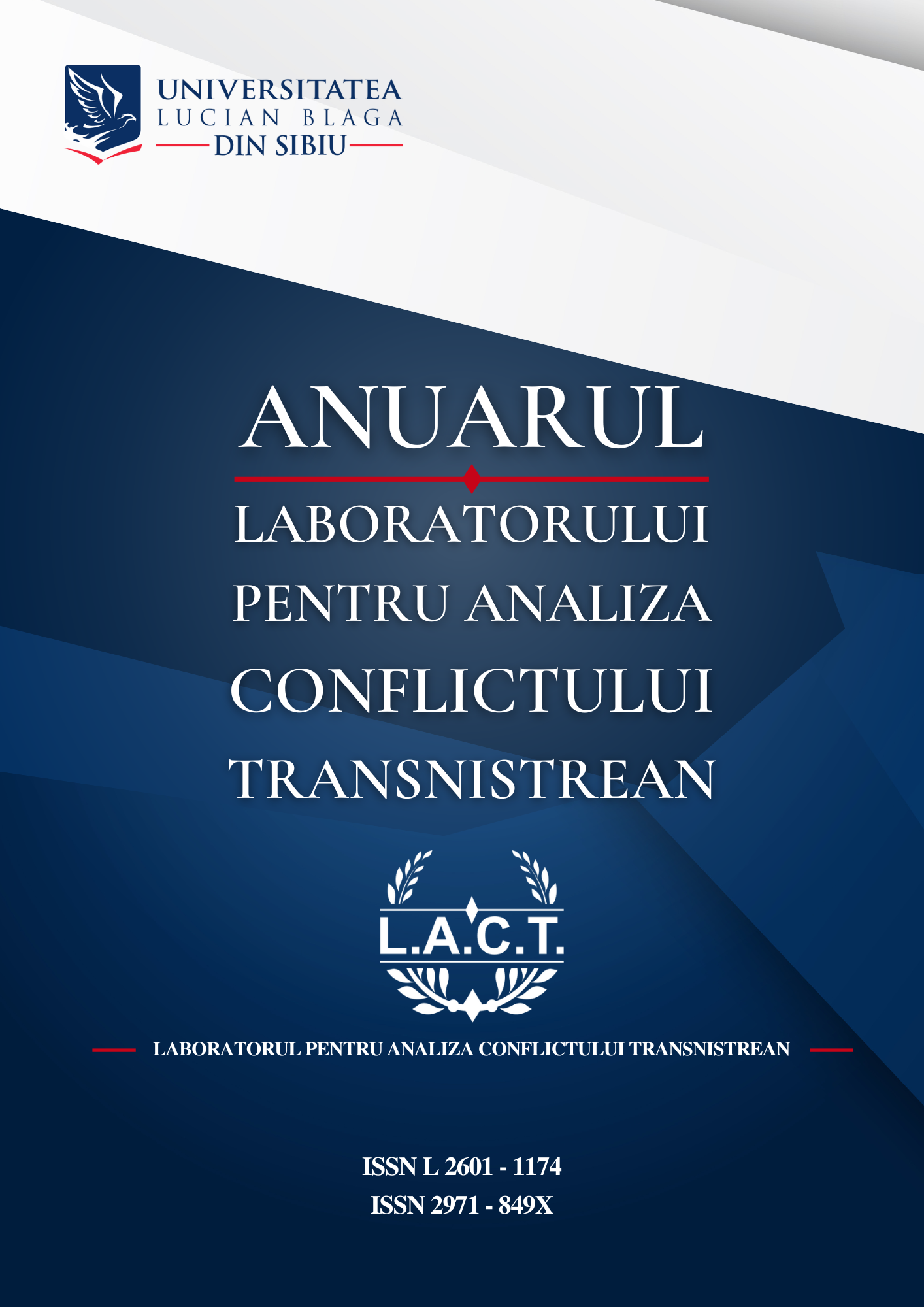USING THE CONCEPT OF "HUMAN SECURITY" IN THE STUDY OF THE POST-MILITARY STAGE OF THE TRANSNISTRIAN SETTLEMENT: PROBLEM STATEMENT
USING THE CONCEPT OF "HUMAN SECURITY" IN THE STUDY OF THE POST-MILITARY STAGE OF THE TRANSNISTRIAN SETTLEMENT: PROBLEM STATEMENT
Author(s): Valentina Teosa, Anatoly DirunSubject(s): Human Rights and Humanitarian Law, Governance, Government/Political systems, International relations/trade, Security and defense, Military policy, Present Times (2010 - today), Post-Communist Transformation, Geopolitics, Politics and Identity, Peace and Conflict Studies
Published by: Editura Universitatii LUCIAN BLAGA din Sibiu
Keywords: "Human security"; Transnistrian settlement; Post war stage; Democratization; Human rights;
Summary/Abstract: In the modern world, the total number of international and internal conflicts not only does not decrease - but continues to grow, new forms of them (ethno-political, religious) are emerging that are little subject to the stabilizing effect of traditional instruments of diplomacy. Regional conflicts are coming to the fore, characterized by high intensity, widespread use of means of direct armed aggression and the ability to draw neighboring regions into their sphere. A separate type of regional conflicts are unresolved, or as they are also commonly called, "protracted" conflicts in the post-Soviet space continue to be the focus of many researchers. The situation in Transnistria, Abkhazia, South Ossetia, Nagorno-Karabakh are "classic" examples that have not been resolved for more than three decades. The purpose of the work is to identify the influence of non-power tools on the post-military stage of the development of the Transnistrian conflict based on the concept of "Human security".
Journal: Anuarul Laboratorului Pentru Analiza Conflictului Transnistrean
- Issue Year: VI/2022
- Issue No: 1
- Page Range: 127-138
- Page Count: 12
- Language: English

